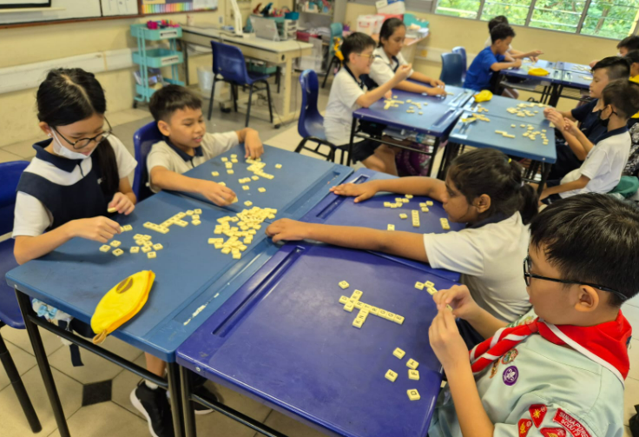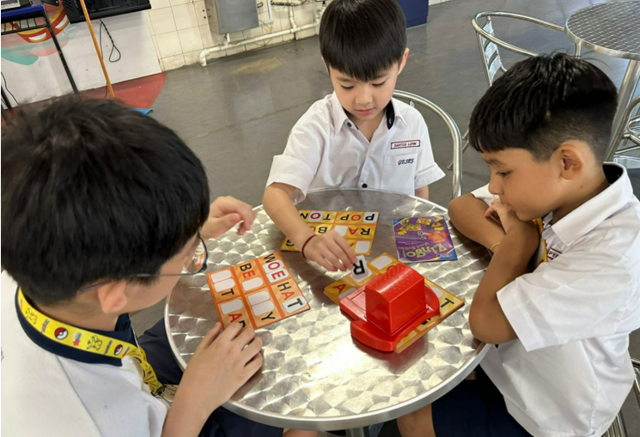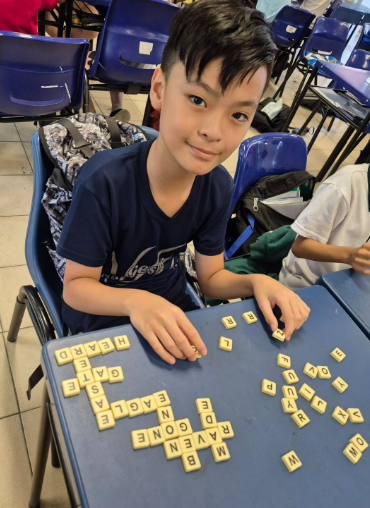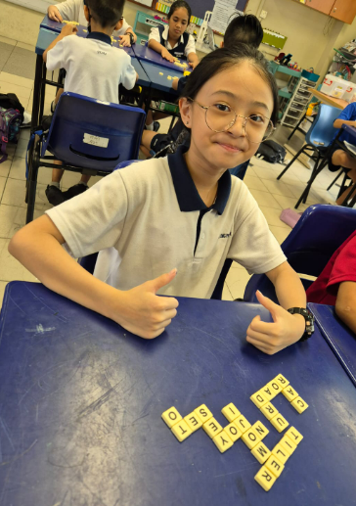English
Learning English @GESPS
The English curriculum in Gan Eng Seng Primary School is designed to meet the needs, abilities and interests of GESPians. With the national curriculum STELLAR (STrategies for English Language Learning And Reading) forming the core, GESPS’ instructional programme for the English Language (EL) also comprises our own school-based curriculum in oracy, reading and writing. These efforts aim to develop the GESPian into a confident and engaged learner who are competent in the language skills of listening, speaking, reading and writing in EL.
Adopting the STELLAR vision to develop in children the love for reading and a strong foundation in EL, an English lesson is never without interesting and authentic texts. At each level, lessons are delivered through engaging and age-appropriate strategies. Every new EL teacher undergoes training and mentoring in the pedagogies required for the level, which include Shared Book Approach and Modified Language Experience Approach for the lower primary and Supported Reading, Know-Want to know-Learnt and the Writing Process Cycle for the upper primary. The students undergo the range of strategies when they learn English in GESPS.
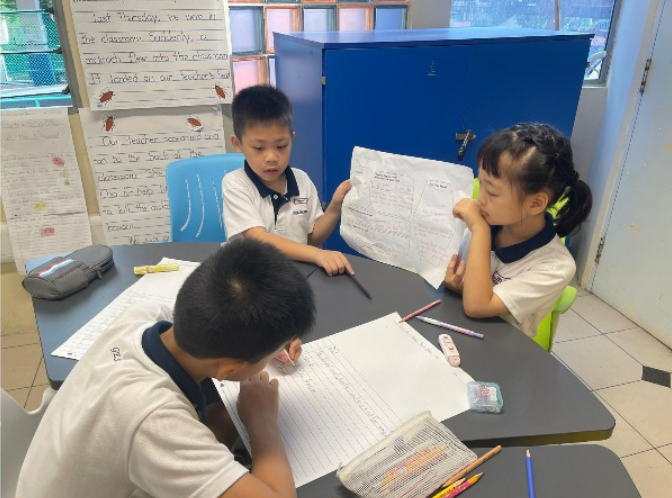
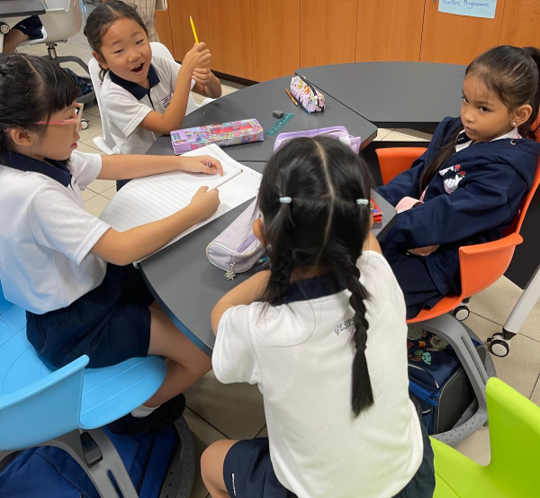
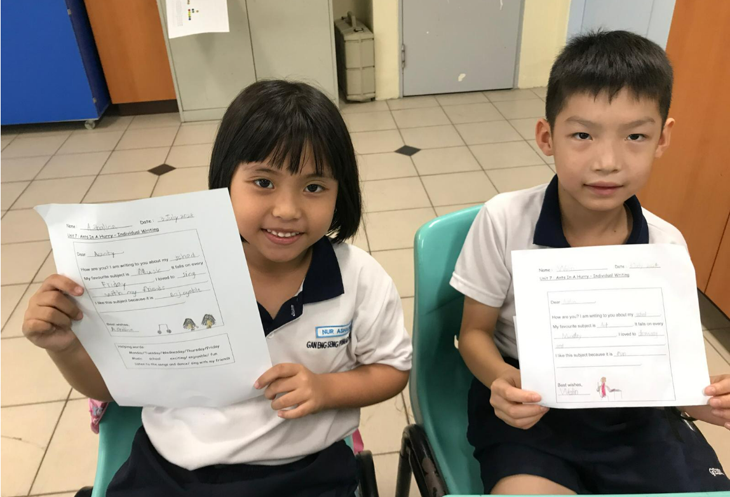
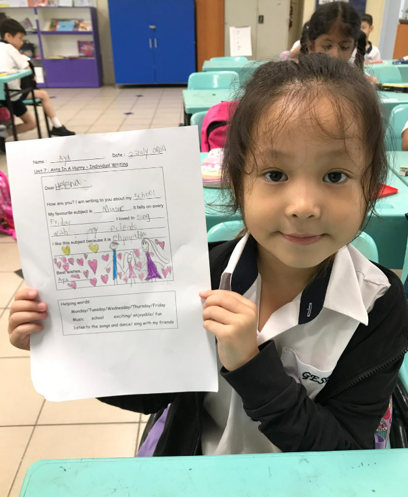

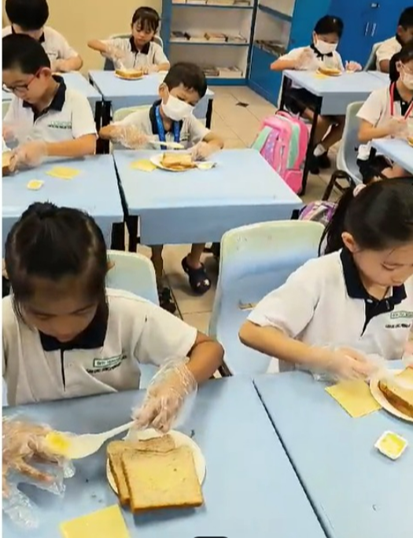
Embracing all Students - Curriculum Customisation
The STELLAR curriculum is supplemented by a range of school-designed programmes to meet the varied needs, abilities and interests of our students. Through these efforts, GESPians will be equipped with the necessary language skills to confidently face the future.
I. Reading Programme
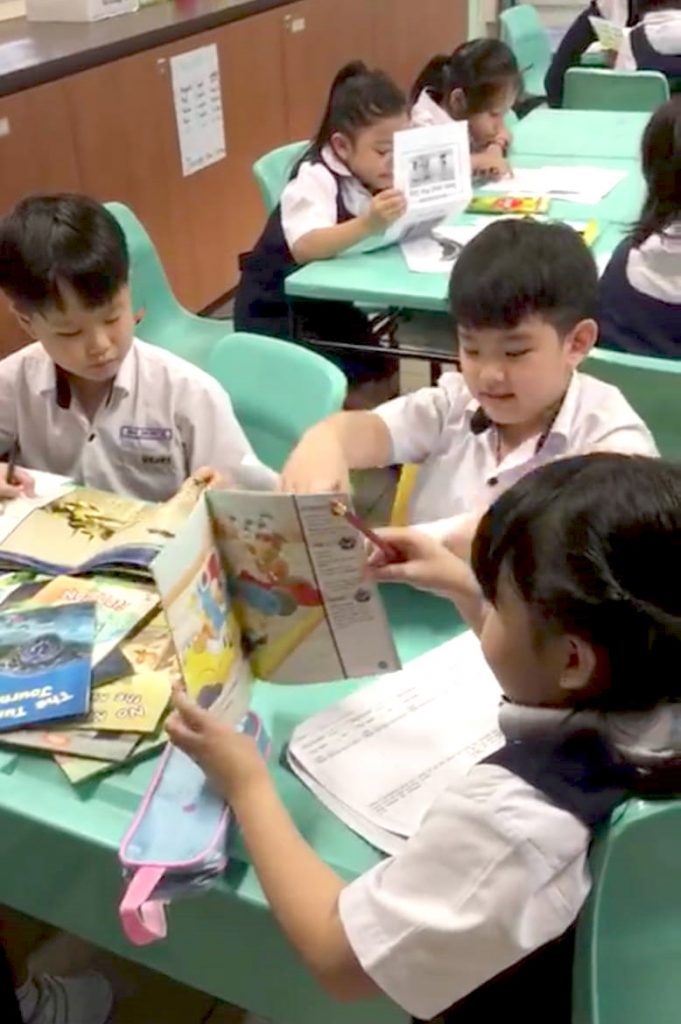
Reading Milestones is a whole-school intensive reading programme launched in 2018 founded on the principle of differentiated instruction to systematically raise every student’s reading competencies. It is designed to complement the teaching and learning of reading comprehension skills in the English classroom. At every level, students are individually placed and assigned reading material appropriate to their levels. They are promoted to the next reading level when they have demonstrated progress in their reading skills. This programme is conducted weekly.
At the foundational part of this programme, students in the Learning Support Programme undergo buddy reading using yet a different set of graded material. For these emergent readers, buddy reading takes place twice weekly. The EL teacher monitors their progress through regular small group reading instruction. To further encourage the love of reading, the school has collaborated with the National Library Board (NLB) since 2014.
The intensive reading curriculum is supported by a range of extensive reading efforts. Such efforts include DEAR (Drop Everything And Read) time in the early morning, the School Library and the Class Library collection in every English classroom.
II. Supporting Lower Progress Learners
Recognising literacy as the bedrock of learning, the school spares no effort in providing additional support for our students who are struggling with language learning. The school has early intervention programmes such a Learning Support Programme (LSP)for Primary 1 and 2, School-based Dyslexia Remediation (SDR) and Reading Remediation Programme for Primary 3 and 4.
Beyond the above programmes, the school has put in place EL Remediation students who need additional support in language learning. These lessons take place after school in small groups.
For struggling readers who find it difficult to keep up with the teaching and learning in the regular lessons, the school arranges for pull-out teaching to provide customised attention to these students. These teachers are usually have training in supporting lower progress learners in EL.
III. Stretching Higher Progress Learners
At the upper primary levels, high progress students have literature enrichment lessons to deepen their appreciation of the language and enhance their enhance their analytical thinking through the study of a chapter book. In addition,students are exposed to newspaper reading for class sharing and discussion of current events and issues. Selected students will go through debate and creative writing lessons to challenge themselves beyond what they have learnt in the curriculum. At the middle primary, students get to read supplementary literary magazines which are subscribed which are subscribed to arouse and sustain their interest in English.
Fostering the Joy of Learning – Special Programmes
Besides the pedagogical efforts in the school English curriculum, the school seeks to provide authentic platforms for students to demonstrate their language skills and instill the joy of learning.
A. Oracy Programme
GESPians undergo a structured oracy programme which complements the teaching and learning of listening and speaking skills during their English lessons. The overarching objective across the levels is to develop students’ confidence in presenting before an audience.
The targeted skill focus spirals upwards from the basic oratorical skills at Primary 1 to the more complex over the years.
Curriculum (revised in 2020)
P1 - Choral Reading & Poetry Recitation
P2 - Readers’ Theatre Show-and-Tell
P3 - Show-and-Tell (personal description)
P4 - Show-and-Tell (information report)
P5 - Persuasive Speech (prepared)
P6 - Persuasive Speech (prepared and impromptu)
The students are taught to use their voice more effectively as they discover new ways to create and present the language. At the end of the oracy lessons, students take turns to showcase their oratorical skills before their classmates. It is always an enjoyable time as the class plays both audience and performer for the day. Besides presenting for confidence, dialogic conversations are incorporated in English lessons to equip students with communication and dialogic skills.
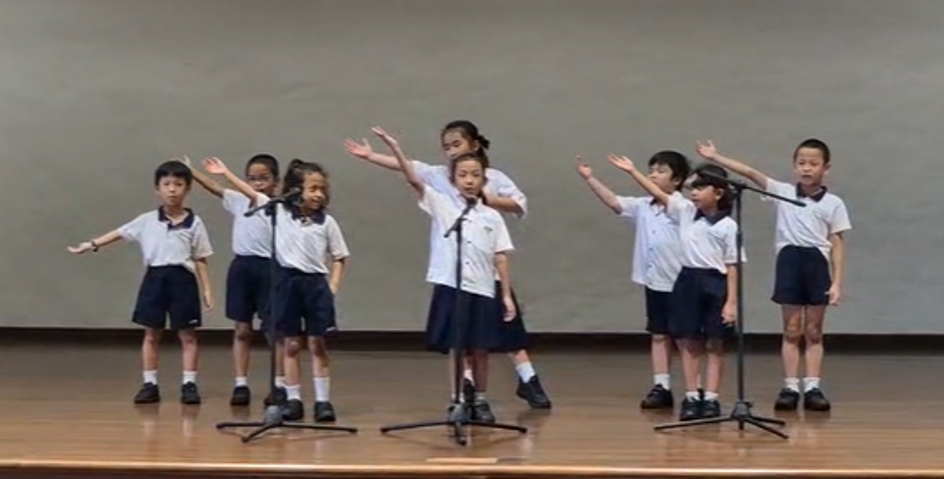
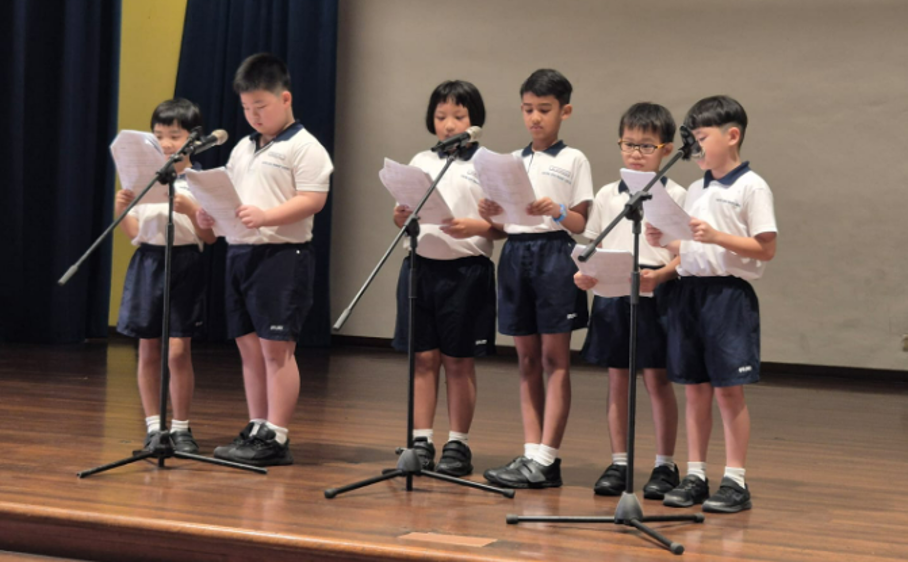
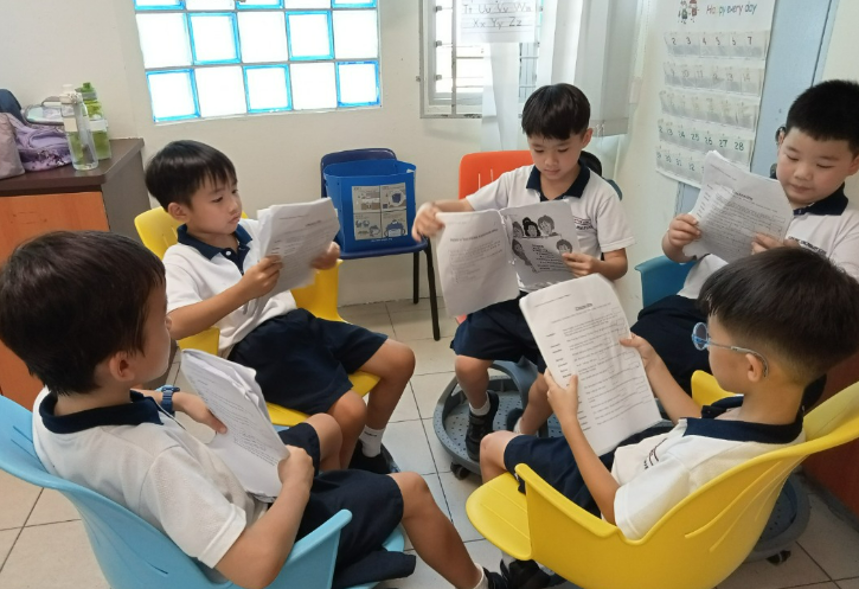
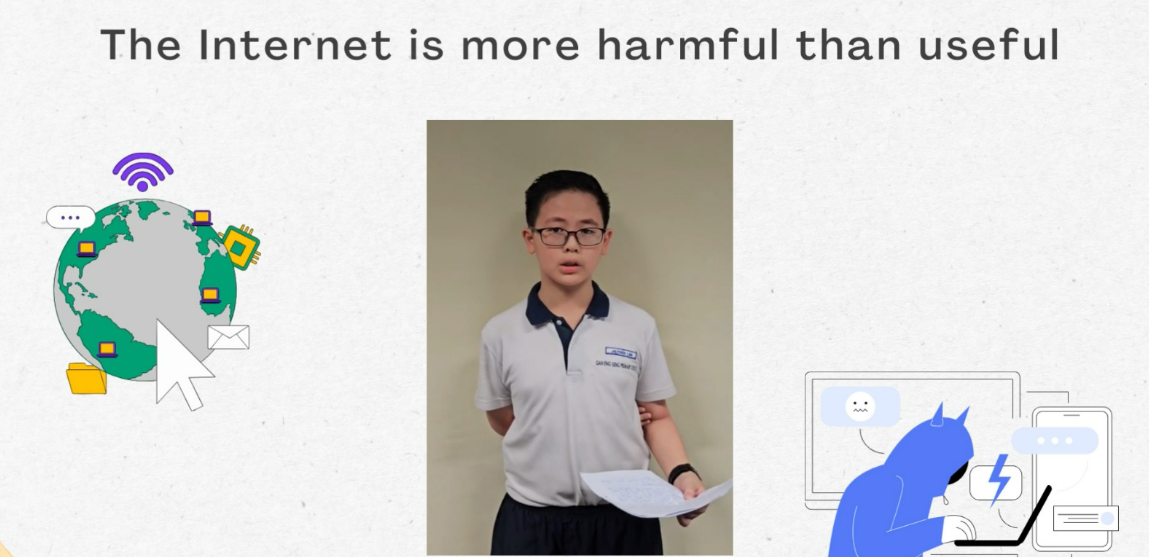
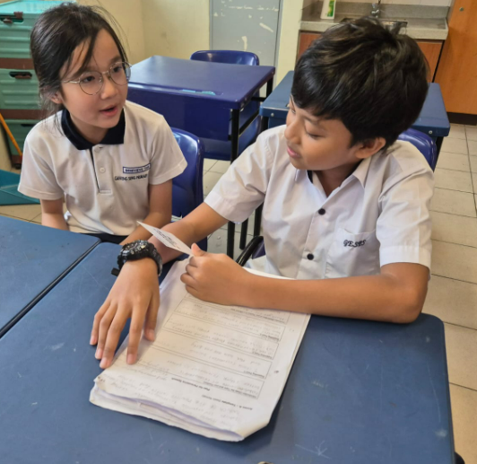
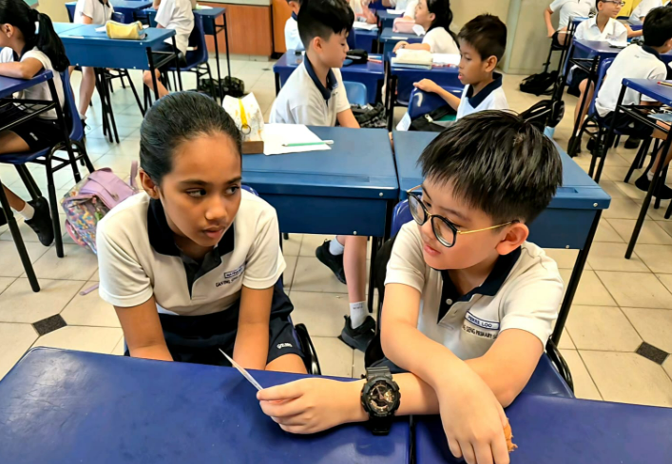
B. Use of English Games
During English lessons, students are given the opportunities to play English games such as Scattergories and Bananagrams. Learning of the language is made fun and enjoyable.
